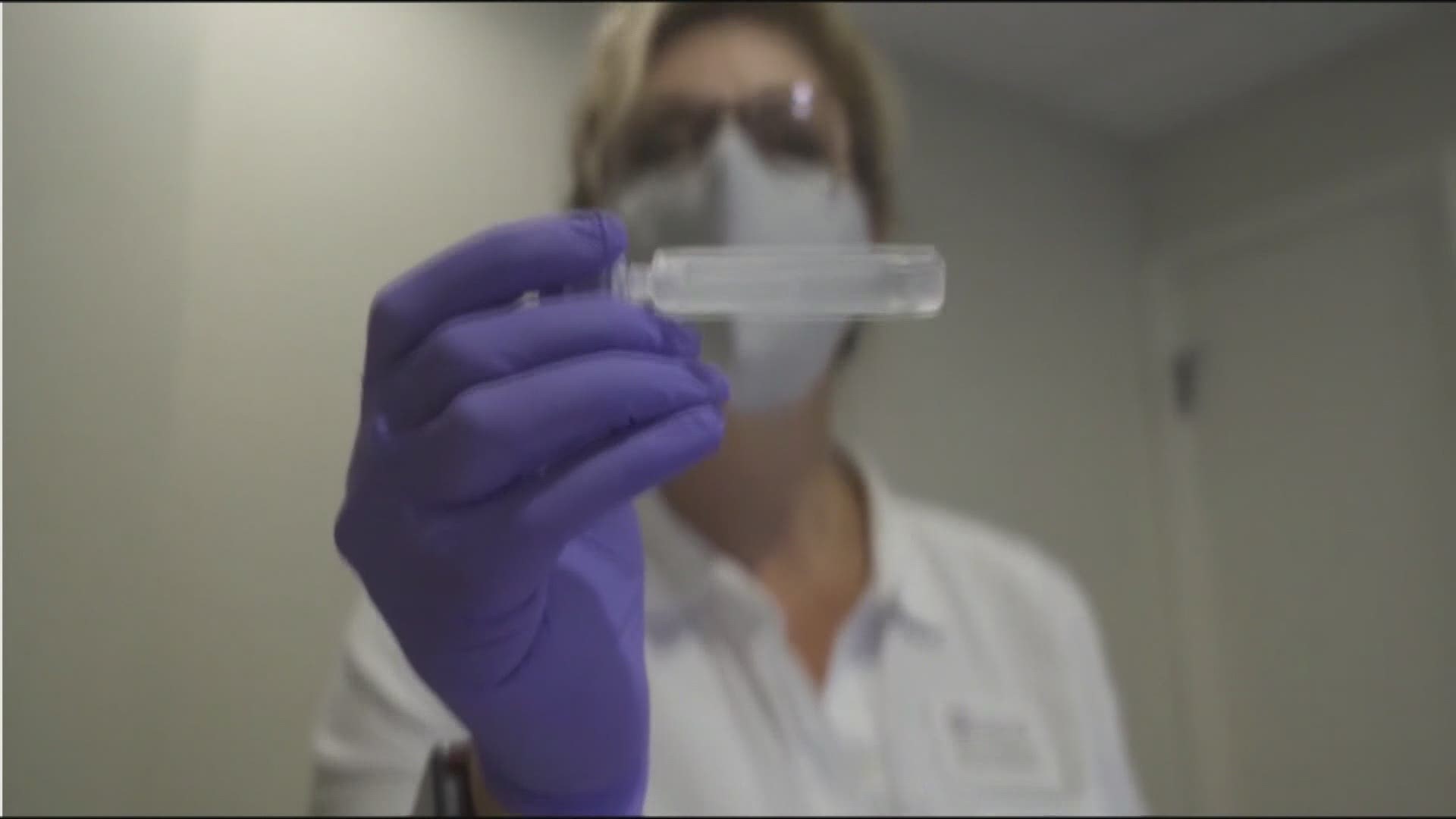The CDC's vaccine advisory committee is meeting Wednesday to see if there is a possible link between the Johnson & Johnson vaccine and rare blood clots.
We know many of you have gotten that same vaccine, so here are some answers to your questions, from Tulane vaccinologist Dr. Lisa Morici.
Why is the one dose Johnson and Johnson vaccine pausing?
Out of 6.8 million doses given, there are six cases of a rare clotting condition in the brain, in 18 to 48-year-old women, six to13 days after they got the shot. One died, One is in critical condition.
What is the condition?
CVST. Cerebral venous sinus thrombosis. It can cause symptoms similar to a stroke - Headache, blurred vision, fainting/loss of consciousness, loss of movement in part of body, seizures or a coma.
So if you experience any of those symptoms within three weeks after getting the Johnson and Johnson vaccine, or if you have - prolonged headache, stomach ache, pain in legs, or shortness of breath, you should go to the emergency room.
No steps were skipped in the clinical trial of 40,000 people. Were there clots in those participants?
Fewer than a dozen different types of clotting cases were seen. It could not determine if they were linked to the vaccine or from a patient's medical history.
“There weren't enough cases of it in the phase three clinical trial, which enrolled tens of thousands of individuals, to say that there was a causal link,” explained Dr. Morici.
What will the FDA and CDC do to keep us safe?
It will determine if there is a link or no link, determine if the vaccine can continue to all adults or if it should exclude a certain population.
“The important point is, is that I can trust their recommendations. These are the best in the field, the best experts that we have giving these recommendations to the FDA,” she said.
The Johnson and Johnson vaccine is a different delivery system from the Pfizer and Moderna two-dose vaccines.
“There's no link whatsoever of blood clots with the Pfizer and Moderna vaccines. Those vaccines have been used longer and many many millions, tens of millions more people have received the Pfizer and Moderna vaccines,” said Dr. Morici.
Are you concerned now some people will not get a vaccine even though the virus itself causes deadly and dangerous blood clots?
“Yeah. I'm very concerned about that. These vaccines far, far outweigh the risk of the virus.”
The review is expected to take a few days.
The CDC says if you got the Johnson and Johnson vaccine more than a month ago, the risk of getting the extremely rare clotting disorder is very low,
Health care providers are asked to report adverse events to the Vaccine Adverse Event Reporting System at https://vaers.hhs.gov/reportevent.html

